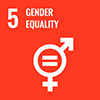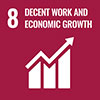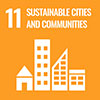Social and solidarity economy in the 21st century, a concept in evolution: co-operatives, B Corporations and Economy for the common good
All forms of social organization that have existed throughout human history have satisfied human needs in diferent ways. That is, they have given different answers to the three basic questions considered by Economics: "what to produce?", "how to produce it?" and "for whom to produce it?" The only trait that all forms of social organization have in common is their consideration of enterprises as the basic unit of production for goods and services.
Therefore, the way decisions are made in firms – the power game forever determining which interests are given priority over others – is key to understanding how the three above-mentioned questions are resolved. As such, faced with various proposals calling for an enconomy that prioritizes people over capital, we need to consider alternative ways in which business can operate.
In light of the above, this paper reviews the wide range of business models that criticize or question the principal of investor-owned firms, ie organizations whose main goal is not to make a profit whatever the cost. The paper provides an overview and comparison detailing the origins of such business models, which include co-operatives, labour-managed firms, B Corps, and Economy for the common good.
ODS





 Vanessa Campos-i-Climent
Vanessa Campos-i-ClimentDctorate in Social Economy (specializing in cooperatives) from 2011. She was the first graduate from the University of Valencia's doctoral programme in Social Economy, which was the first of its kind in Europe. Until 2010 she worked as an economist in the private sector, in strategic consultancy for businesses. She is currently an assistant lecturer in the Department of Business Administration at the University of Valencia. She has been publishing scientific articles on social enterprises, cooperativism and cooperative credit since 2001, and has also been involved in various national and international research projects. Recently she has published two books, Caja popular, un modelo de banca cooperativa, social y diferente [A people's savings bank, a cooperative, social and alternative banking model] and El modelo Consum. Una cooperativa responsable y sostenible [The Consumption model, a responsible and sustainable cooperative], both with Vincle Editorial.



